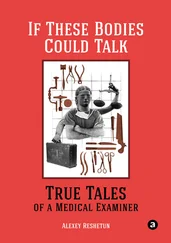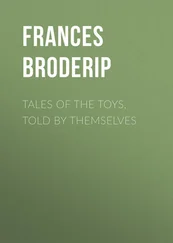Sidney Dickinson - True Tales of the Weird
Здесь есть возможность читать онлайн «Sidney Dickinson - True Tales of the Weird» — ознакомительный отрывок электронной книги совершенно бесплатно, а после прочтения отрывка купить полную версию. В некоторых случаях можно слушать аудио, скачать через торрент в формате fb2 и присутствует краткое содержание. Жанр: foreign_antique, foreign_prose, на английском языке. Описание произведения, (предисловие) а так же отзывы посетителей доступны на портале библиотеки ЛибКат.
- Название:True Tales of the Weird
- Автор:
- Жанр:
- Год:неизвестен
- ISBN:нет данных
- Рейтинг книги:4 / 5. Голосов: 1
-
Избранное:Добавить в избранное
- Отзывы:
-
Ваша оценка:
- 80
- 1
- 2
- 3
- 4
- 5
True Tales of the Weird: краткое содержание, описание и аннотация
Предлагаем к чтению аннотацию, описание, краткое содержание или предисловие (зависит от того, что написал сам автор книги «True Tales of the Weird»). Если вы не нашли необходимую информацию о книге — напишите в комментариях, мы постараемся отыскать её.
True Tales of the Weird — читать онлайн ознакомительный отрывок
Ниже представлен текст книги, разбитый по страницам. Система сохранения места последней прочитанной страницы, позволяет с удобством читать онлайн бесплатно книгу «True Tales of the Weird», без необходимости каждый раз заново искать на чём Вы остановились. Поставьте закладку, и сможете в любой момент перейти на страницу, на которой закончили чтение.
Интервал:
Закладка:
"Why," she exclaimed, "how did these come here? They are the pansies I picked for mamma yesterday from my pansy bed!"
"Oh, no, dear," I said; "these are probably some other pansies; how can you tell they came from your bed?"
"Why," she replied, "I know every one of my pansies, and this one" – holding up a blossom that was of so deep and uniform a purple as to appear almost black – "I could tell anywhere, for there was no other in the bed like it."
So she collected all the scattered flowers and insisted on carrying them to church, and on returning home they were replaced, with their fellows, in the vase from which they had been so mysteriously transferred the night before.
It has been my purpose, in preparing these stories for publication, not to permit myself to be led into any attempt to explain them, or even to embellish them with comment, and thus perhaps weaken what I desire to present as a plain statement of fact – yet this incident of the pansies seems to me (although for quite personal reasons) so touching, and so tender in its suggestions, that I cannot forbear a word or two concerning it. In thus indulging myself I am aware that the reader may think he finds a contradiction of the statement I have made in the preface of this book as to my non-committal attitude regarding Spiritualism. On this point I can only say that while I am not convinced as to the origin of the phenomenon, I should find much comfort if I could with assurance attribute it to a spiritualistic source. There are doubtless many who will thus refer it, and I write these lines in sympathy, even if somewhat doubtingly, with their point of view.
In every way this event stands unique in my experience – in place of its occurrence, and in all its circumstances. The town was the scene of my youthful wooing – the street one in which my fiancée and I had walked and talked a thousand times on the way between my home and hers. To this town, and to this familiar path, the new wife had come with me, and with us both the child of her love and sacrifice. Is there no significance, is there no consolation, not only to myself but to others who have been bereaved, in this episode? The loving gift of flowers to her new guardian by the innocent and unconscious child; the approval of the offering through its repetition, by the apparent spirit of the mother that bore her! – these things may mean nothing, yet in me whom they approached so nearly they have strengthened the hope that lives in every human heart, that the flame of our best and purest affections shall survive the seeming extinguishment of the grave.
Science, to be sure, has its explanation, and in fairness that explanation should be heard. To quote an eminent authority who has favored me with his views on the subject: – "The power that moved the pansies was a psychic force inherent in the human personality [of your wife] and exercised without the knowledge or cooperation of the objective self." (Dr. John D. Quackenbos.)
In other words, it was not the spirit of the dead wife that lifted the pansies and showered them upon us, but what we must call, for want of a better term, the living wife's "subliminal self." The vision that appeared and seemed to be casting the flowers was a freak of the psychical consciousness – there was no apparition save in my wife's overwrought imagination.
To quote again: "But that does not preclude the possibility of the levitation of the pansies, which levitation was accomplished by the lady herself, however ignorant of the operation of this psychic force she used objectively. The fact that she was thus objectively ignorant would be no obstacle to her subjective mind using in the objective earth-life her own super-sensible attributes and powers."
The principal objection to this argument seems to me to lie in this: – the pansies did not first fall upon us, and thus, by suggestion or otherwise, so excite my wife's imagination that she thought she saw the apparition; the apparition was first manifest, and the rain of flowers followed. That is to say, an appearance of the immaterial was followed by a tangible manifestation – there was nothing imaginary about that . Had the conditions been reversed, the fall of the flowers might very well have excited apprehension of the vision – but I cannot see where there was any place for fancy in experience of this incident.
The second episode to which I have alluded in the opening paragraph of this narrative occurred in the following winter, and was, in a certain sense, a sequel to the first. Business took me from my home in Boston, and during my absence my wife and daughter were invited by the lady I have already mentioned to spend a few days at her house in Brookline. Her husband was away on one of his frequent business trips, leaving with his wife her widowed sister, Mrs. Myra Hall, his daughter, a girl of eighteen, and a young German lady, Fräulein Botha, whose acquaintance the hostess had formed abroad, and who at the time was at the head of the Department of Instruction in Art at Wellesley College. All these were witnesses, with my wife, of the remarkable event which I am about to describe.
On the afternoon of the second day of my wife's visit, the child became suddenly ill, and as evening drew on exhibited rather alarming symptoms of fever. A physician was summoned who prescribed remedies, and directed that the patient should be put to bed at once. This was done, and at about ten o'clock my wife, accompanied by the ladies I have mentioned, went quietly upstairs to observe her condition before retiring for the night themselves. The upper floor was reached by a very broad staircase which branched near the top to give access to the chambers upon a wide hall, from every part of which one could look down over a railing upon the floor below – and the room in which the child lay was about half-way around this hall on the left-hand side.
The ladies entered the chamber and the hostess turned up the gas, showing the child peacefully slumbering and with forehead and hands moist with a wholesome perspiration, although her face was still somewhat flushed. As the night was a bitter cold one in mid-January, the mistress of the house suggested that some additional covering should be placed upon the bed, and produced from another room an eider-down counterpane, covered with scarlet silk, which was carefully arranged without waking the sleeper. All then left the room and started downstairs again, the hostess being the last to go out, after lowering the gas until it showed only a point of light.
They were near the bottom of the staircase when my wife suddenly cried out: "Oh, there is Minnie! She passed up the stairs by me, all in white, and has gone into the room! Oh, I know something dreadful is going to happen!" – and she rushed frantically to the upper floor, followed by the others in a body. At the half-open door of the child's room they all stopped and listened, not daring for the moment to enter, but no sound came from within. Then, mustering up courage and clinging to each others' hands, they went softly in, and the hostess turned up the gas. With one accord they looked toward the bed, and, half-blinded by the sudden glare of the gaslight, could not for a moment credit what their eyes showed them – that the sleeping child was lying under a coverlet, not of scarlet, as they had left her hardly a minute before, but of snowy white. Recovering from their astonishment, an examination revealed the cause of the phenomenon. The scarlet eider-down counterpane was in its place, but completely covered with pure white lilies on long stalks, so spread about and lying in such quantities that the surface of the bed was hidden under their blooms. By actual count there were more than two hundred of these rich and beautiful blossoms strewn upon the coverlet, representing a moderate fortune at that time of year, and probably unprocurable though all the conservatories in the city had been searched for them.
Читать дальшеИнтервал:
Закладка:
Похожие книги на «True Tales of the Weird»
Представляем Вашему вниманию похожие книги на «True Tales of the Weird» списком для выбора. Мы отобрали схожую по названию и смыслу литературу в надежде предоставить читателям больше вариантов отыскать новые, интересные, ещё непрочитанные произведения.
Обсуждение, отзывы о книге «True Tales of the Weird» и просто собственные мнения читателей. Оставьте ваши комментарии, напишите, что Вы думаете о произведении, его смысле или главных героях. Укажите что конкретно понравилось, а что нет, и почему Вы так считаете.












